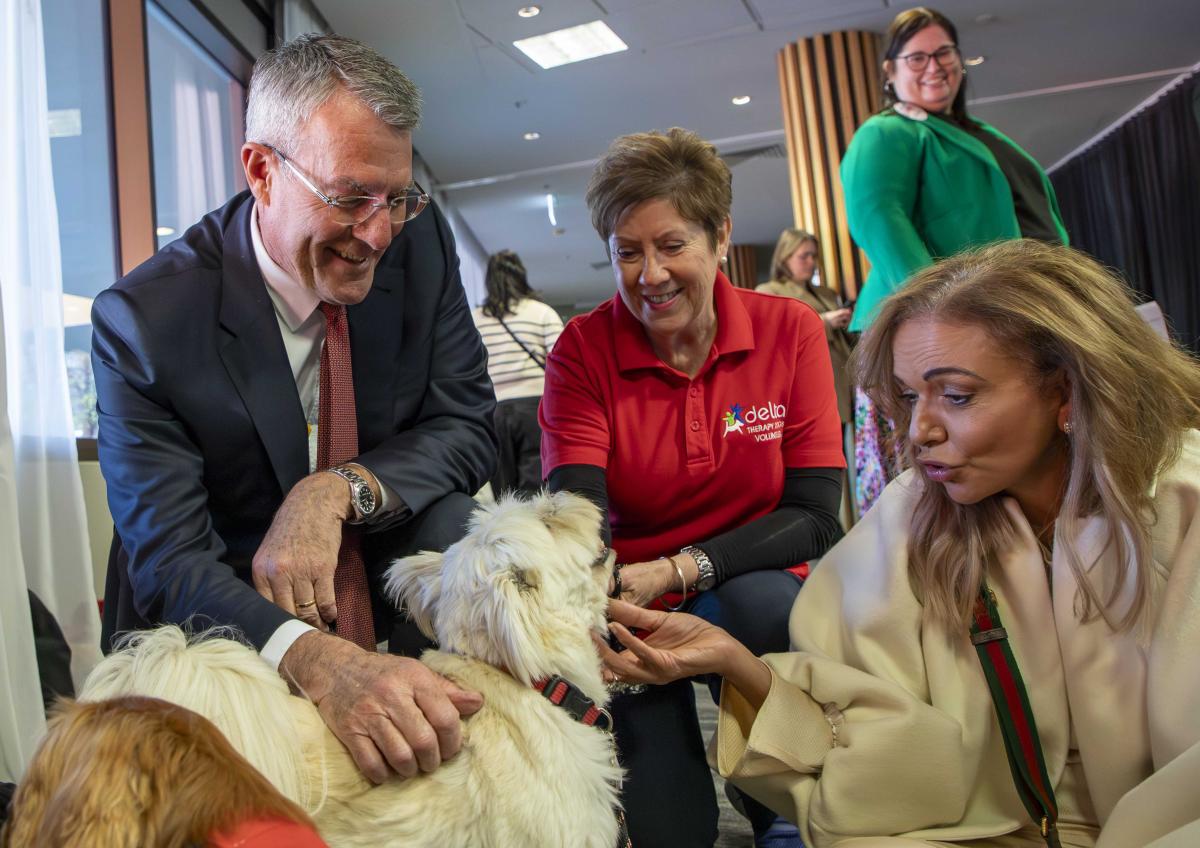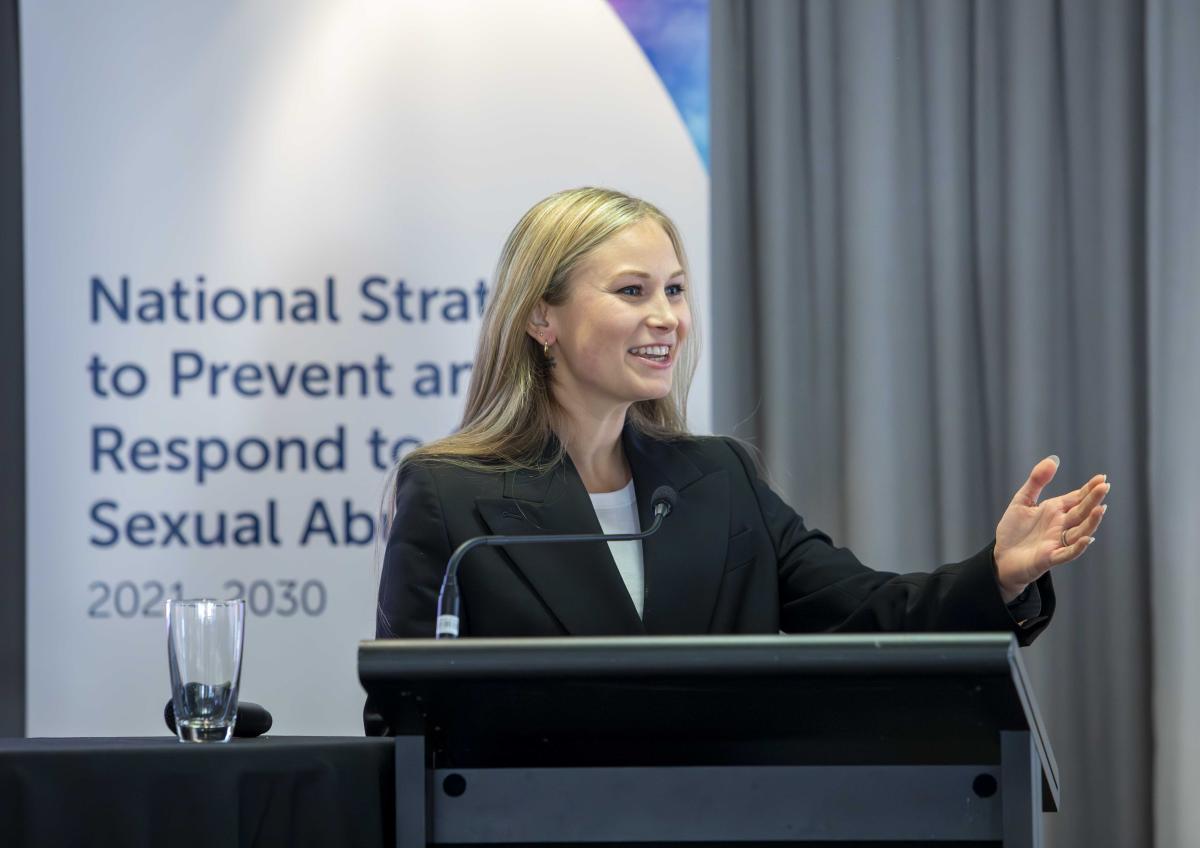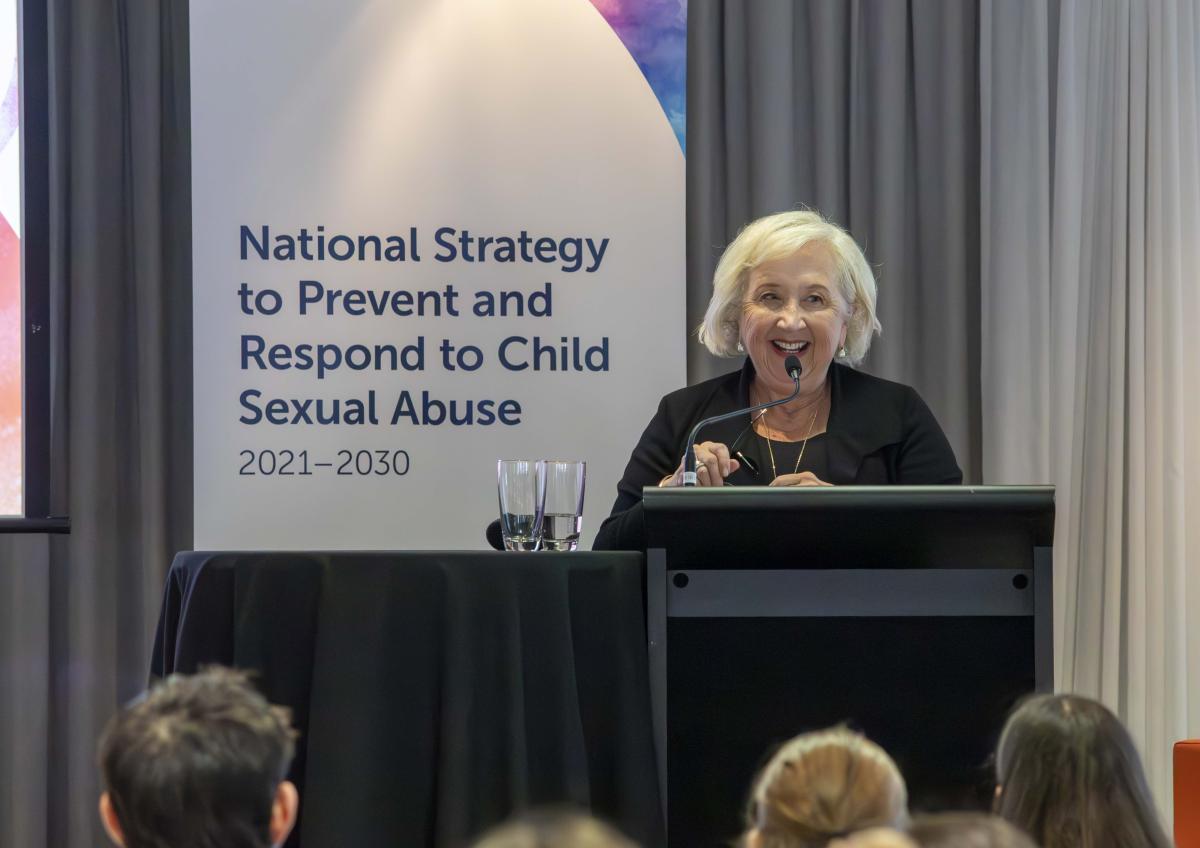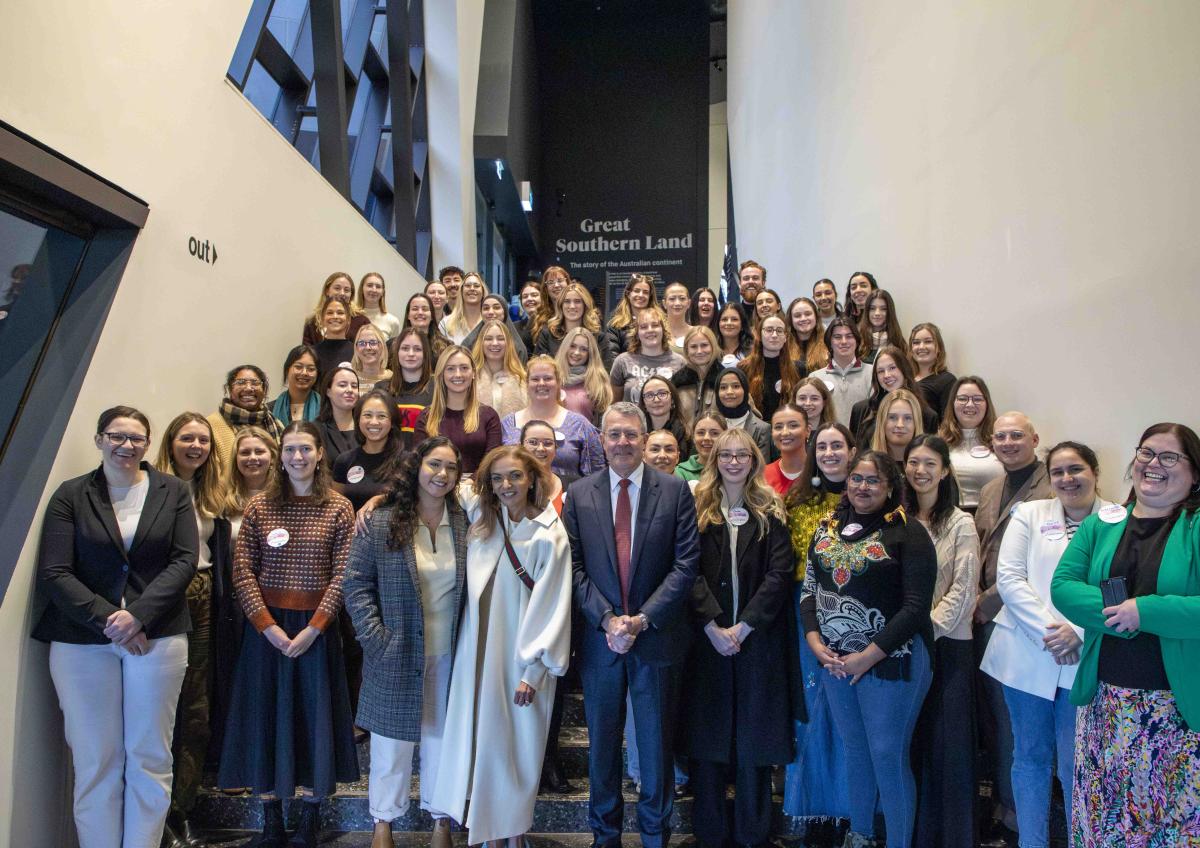National Child Safety Youth Summit
National Child Safety Youth Summit 2024
We hosted the National Child Safety Youth Summit 2024 on 24 and 25 June at the National Museum of Australia.
The Youth Summit brought together about 60 young people (18-30 years) with lived experience of child sexual abuse, as well as advocates and other invited attendees from across Australia to engage with us on topics, issues and measures under the National Strategy to Prevent and Respond to Child Sexual Abuse 2021-2030 (National Strategy).
Young people are a priority group under the National Strategy, and the Youth Summit established a safe, effective and meaningful space for young people to collaborate and share their ideas and approaches to prevent and respond to child sexual abuse.
Attendees heard keynote addresses from Anne Hollonds, the National Children's Commissioner, and Grace Tame, survivor of child sexual abuse, writer, advocate and 2021 Australian of the Year. Attendees engaged in a meaningful Q&A session with both keynote speakers, which was thought provoking and inspired a real sense of agency.
The Hon Mark Dreyfus KC MP, the then Attorney-General, and the Hon Anne Aly MP, the then Minister for Youth, addressed the Youth Summit on the second day. They emphasised the Australian Government's commitment to ensuring the safety of children and young people.
The Youth Summit was an opportunity to offer attendees a platform to build their advocacy networks with other young people and advocates from across the country.
What we heard - key messages
Attendees highlighted the need for a unified and robust voice advocating for child safety, and to promote the safety and wellbeing of children and young people as a national priority.
Attendees emphasised the need to amplify and support the voices and views of victims and survivors, especially those from marginalised communities. Attendees encouraged each other to find strength and support in the victim and survivor community, and hearing from each other’s stories. By uplifting a diverse range of voices and perspectives, we can work towards a more inclusive and equitable approach to preventing and responding to child sexual abuse.
Attendees highlighted the need for a deeper understanding about trauma and an increased awareness of the impacts of child sexual abuse in the broader Australian community, including how to recognise the signs of child sexual abuse and respond to disclosures in a trauma-informed way. Attendees suggested:
- Training and education on child sexual abuse and trauma-informed practices should be made available across all sectors that engage with children and young people and those who may come across disclosures, such as educators, law enforcement, judges and court officers, and medical professionals, among others.
- Training, education materials and resources must be culturally sensitive and accessible to all communities. Materials should be tailored to meet diverse cultural needs to improve the effectiveness of prevention and support efforts. These materials or activities should be designed and developed in partnership with the communities they are intended to support.
- Age-appropriate and evidence-based content should be developed to increase education and awareness on issues such as comprehensive sex education, consent education and harmful sexual behaviours.
Attendees emphasised that governments should engage with children and young people to ensure their voices and views are reflected in policies and programs that affect them. Attendees highlighted the following points:
- Governments should engage with children and young people from a wide range of backgrounds and experiences. They should recognise that individual experiences are unique and may not all be represented by a selected group.
- When engaging with children and young people, governments should create a physically and psychologically safe environment and be mindful of consultation fatigue.
- Consultation should be informative, accessible and flexible. For example, it should use a diverse range of avenues and platforms including social media, focus groups and email surveys.
- It is important to have accountability and stronger feedback loops between consultation participants and governments, to ensure participants are informed on how their feedback has been used and acted on to inform government decisions and policy.
Attendees recognised the value of building strong support networks and fostering collaboration between each other. Attendees noted these peer support networks are essential for sustaining advocacy efforts, amplifying diverse voices, enhancing the impact of advocacy work and driving systemic change.
In the video below, young people shared that individuals and communities all have a role in preventing child sexual abuse.
In the video below, young people shared that it’s important for government to engage with young people because their experience is unique and their voices are important to guide policy makers to design policies and programs that directly affect them.




